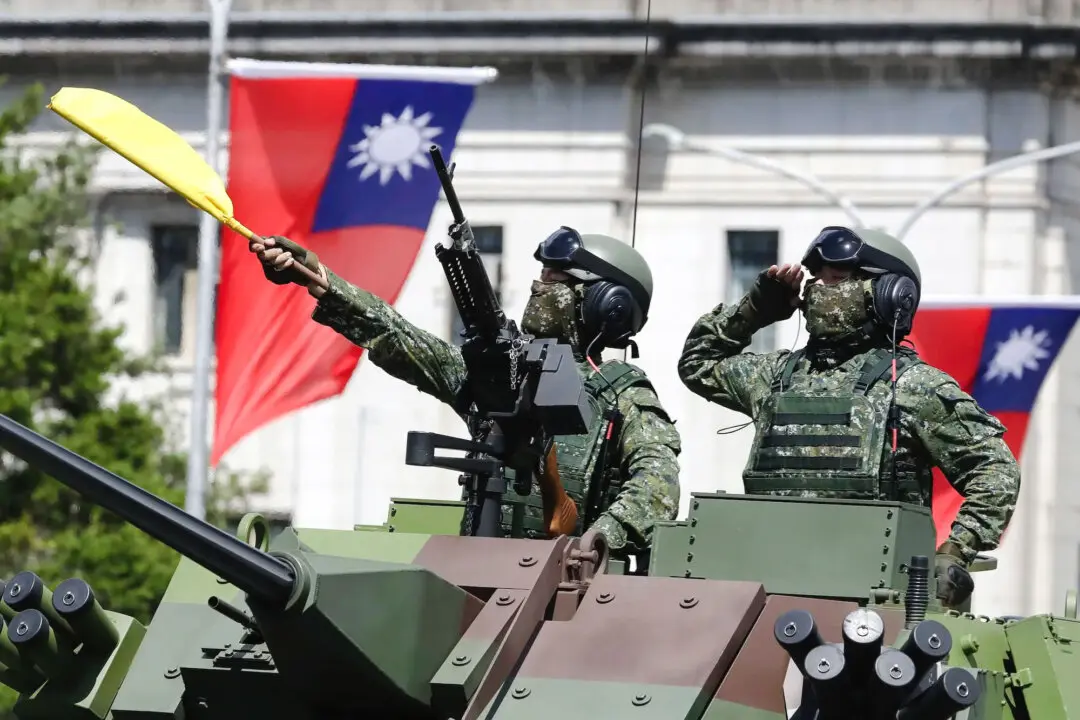The Chinese regime sanctioned 13 U.S. defense companies and six executives on Dec. 5 in response to the U.S. government’s latest arms sale to Taiwan.
China Sanctions US Companies, Executives Over Arms Sale to Taiwan
Arms sales to Taiwan have ‘a deterrent effect on the Chinese People’s Liberation Army,’ an expert said.

Taiwanese soldiers salute during National Day celebrations in front of the Presidential Building in Taipei, Taiwan, on Oct. 10, 2021. Chiang Ying-ying/AP Photo



